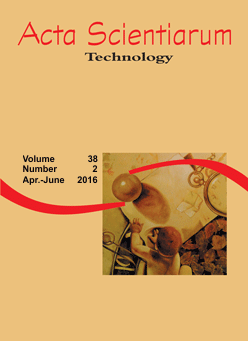<b>Evaluation of robust functions for data reconciliation in thermal systems
DOI:
https://doi.org/10.4025/actascitechnol.v38i2.28188Keywords:
set measures, robustness, efficiency, nonlinear systemsAbstract
Process variables regularly control and evaluate industrial processes. Information with gross errors may in some cases not be attenuated by function reconciliation and change the calculation of process balance, leading optimization results towards non-feasible regions or to optimal sites. A promising alternative for reconciling functions is the use of robust functions. Current paper considers the above scenario and evaluates the fitness of some robust functions in solving in steady state chemical processes data reconciliation problems represented by linear and nonlinear systems in the presence of gross errors. Traditional Cauchy, Fair, Contaminated Normal and Logistic robust functions are used in the reconciliation problem where their estimates are compared to those obtained with the use of the latest features, such as New Target and Alarm. Rates for gross errors in tests were limited between 4 and 10σ of the measured current and elaborated a region of outliers. Results showed that New Target and Alarm functions are different from the others as the magnitude of the gross error increases, tending towards true rates specified by set point.
Downloads
Downloads
Published
How to Cite
Issue
Section
License
DECLARATION OF ORIGINALITY AND COPYRIGHTS
I Declare that current article is original and has not been submitted for publication, in part or in whole, to any other national or international journal.
The copyrights belong exclusively to the authors. Published content is licensed under Creative Commons Attribution 4.0 (CC BY 4.0) guidelines, which allows sharing (copy and distribution of the material in any medium or format) and adaptation (remix, transform, and build upon the material) for any purpose, even commercially, under the terms of attribution.
Read this link for further information on how to use CC BY 4.0 properly.















8.png)




